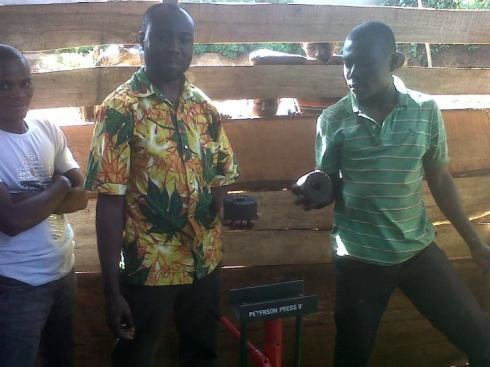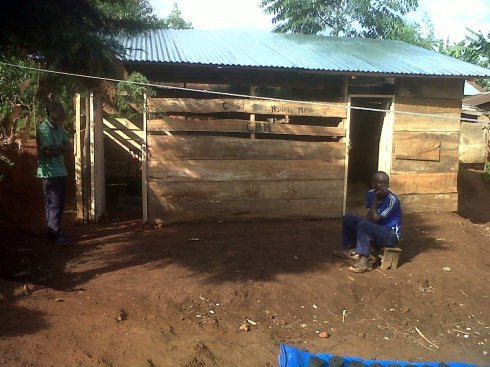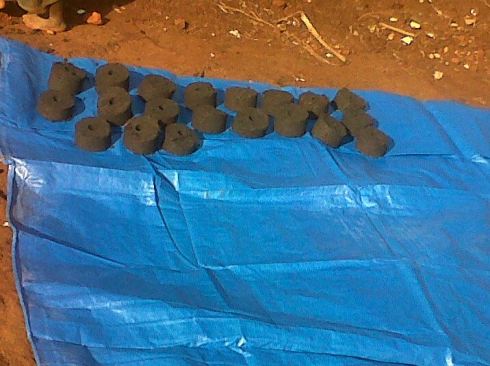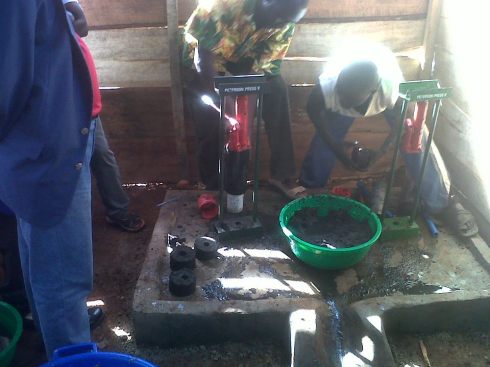Congo Nishati Mpya = Congo New Energy
We are pleased to announce the creation of this new business venture in Butembo, DRC. We are notably grateful for the local leadership of James Kataliko and for the inspiration of Patrick Cowles of Oregon to make this happen.
While pondering the immense needs of the Congolese after our third trip to eastern Congo, Brenda and I came to several conclusions, but foremost was that we needed to do something different. Instead of the Congolese depending on charity and a non-existent government, we had a strong realization that they must be able to create their own wealth and this is best created by small business activities. Constant war and exploitation has held them back economically, but we saw clear evidence that the entrepreneurial spirit was very strong and people yearned to be self-reliant. We were repeatedly asked to become someone’s sponsor, which was short hand for “will you fund my new business venture”. When much of our spare time was devoted to explaining the merit and functionality of drafting a business plan, it became crystal clear to us that Congo needs two key things.
First, Congo needs capital. Most Westerners have forgotten that the basis of our capitalistic society is capital. Someone had to save so someone can invest. Throughout socialistic African cultures, the concept of saving in order to invest is defeated by the expectation that those with money will assist anyone in the village with a need. This results in people spending their money as soon as they get it in order to avoid their obligation to help out a neighbour. The unfortunate effect of having a culture which shares the wealth in this way is that the wealth becomes unavailable for investing. In Congo’s case, what little people had was further eroded by war, government kleptocracy and the lack of the rule of law.
Second, Congo needs education and training on how to run businesses. While they have the desire for self-reliance, proper governance and respectful management practices do not come naturally.
We realized that we could help with both of these items.
At this moment, I came across the work of Patrick’s Children in Uganda. Patrick Cowles has a heart for orphans in Uganda and created the Patrick’s Children ministry to support them. With aid of Rotarians in Oregon, Patrick came up with the idea of providing orphanages with capital equipment capable of making wood briquettes for resale. Using a small hydraulic jack with a circular form, briquettes can be produced using multiple organic sources: wood chips, saw dust, small twigs, paper, dry grass, charcoal fines. Patrick’s Children is providing the necessary equipment for orphanages to produce briquettes and to then keep the profits. Patrick essentially provided the capital and the training to allow the Ugandan orphanages to become self-reliant.
After corresponding with Patrick, I sought to take this general concept into Congo. Kaluma Katembo of CSCODI offered his full support. James Kataliko in Butembo enthusiastically agreed to lead the Congo side. James and his colleague Richard travelled to one of Patrick’s orphanages in Jinja, Uganda to receive training and to pick up their equipment. James planned out their production needs which included a small building. The first briquettes have now been produced, although they need some drying time. Richard will be the local manager. (You can click on an image to expand it.)
Much like in Haiti, everyone in Congo depends on gathered wood to provide cooking heat. This is leading to localized deforestation. Wood briquettes require only water as an additive and so they make a lot of environmental sense. With a sales price of roughly $.03 to $.05 per briquette but with the ability to make hundreds per day, once the capital costs have been deployed, Congo Nishati Mpya has the ability to generate a significant source of funds.
The agreed mandate of the company is to provide good local wages for multiple families while generating profit for the business. 50% of net profits will be maintained by the business for expansion while 50% will be used in support of charitable needs, initially for the CSCODI Mama Dorcas orphanage and the CSCODI school for orphans.





3 comments
Comments feed for this article
April 18, 2012 at 6:09 am
Orphanages for Children
Nice blog. You are providing very good information.
November 4, 2012 at 11:57 am
Bono Gets It Right « Bens in Congo
[…] Congo Nishati Mpya was created for local Congolese to develop small enterprises that will provide income and purpose and to help promote a spirit of entrepreneurship in the community to enable people to develop a better life. […]
November 15, 2015 at 8:43 pm
Mvua Baraka – Blessing Rain | Bens in Congo
[…] initial effort to create a micro-business under the banner of Congo Nishati Mpya was hampered by the wet climate of Butembo. Ever since, we have been trying to determine the most […]